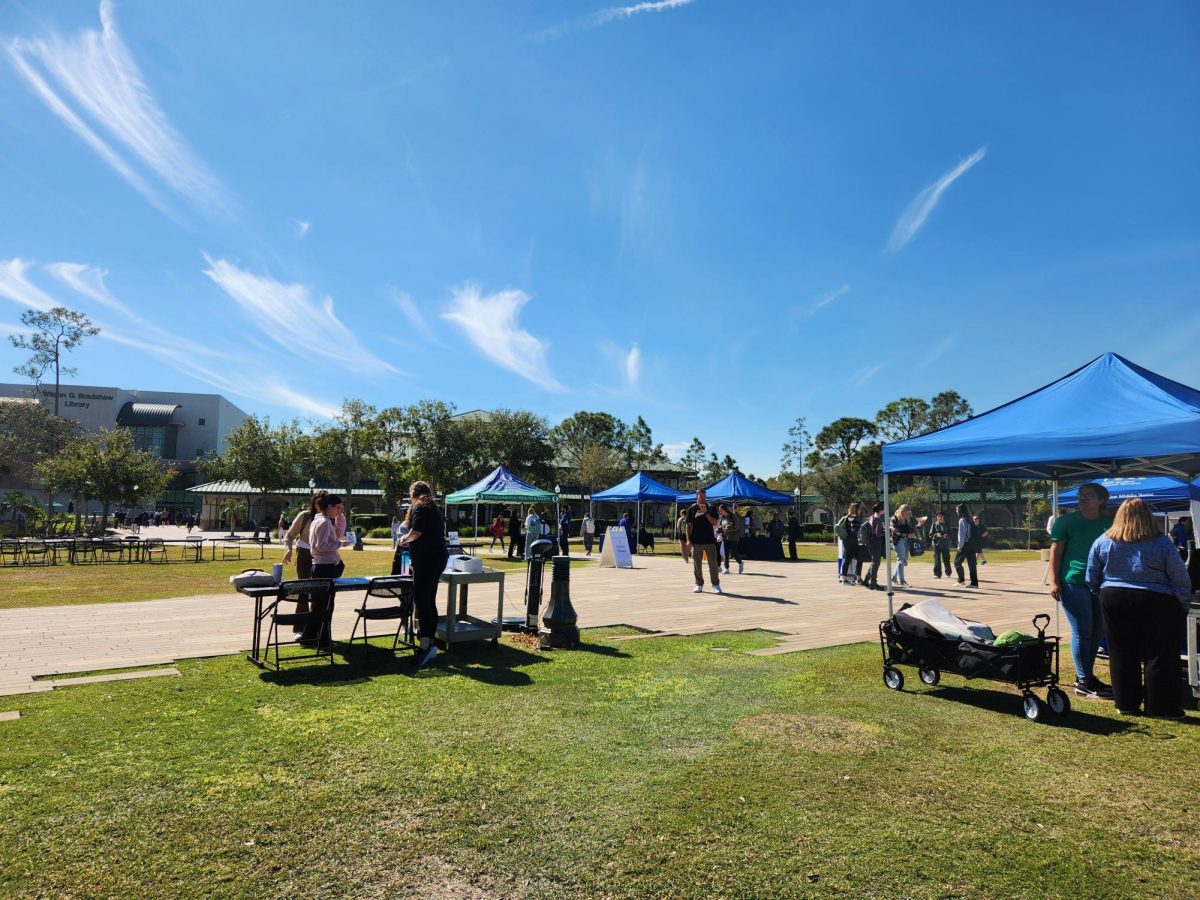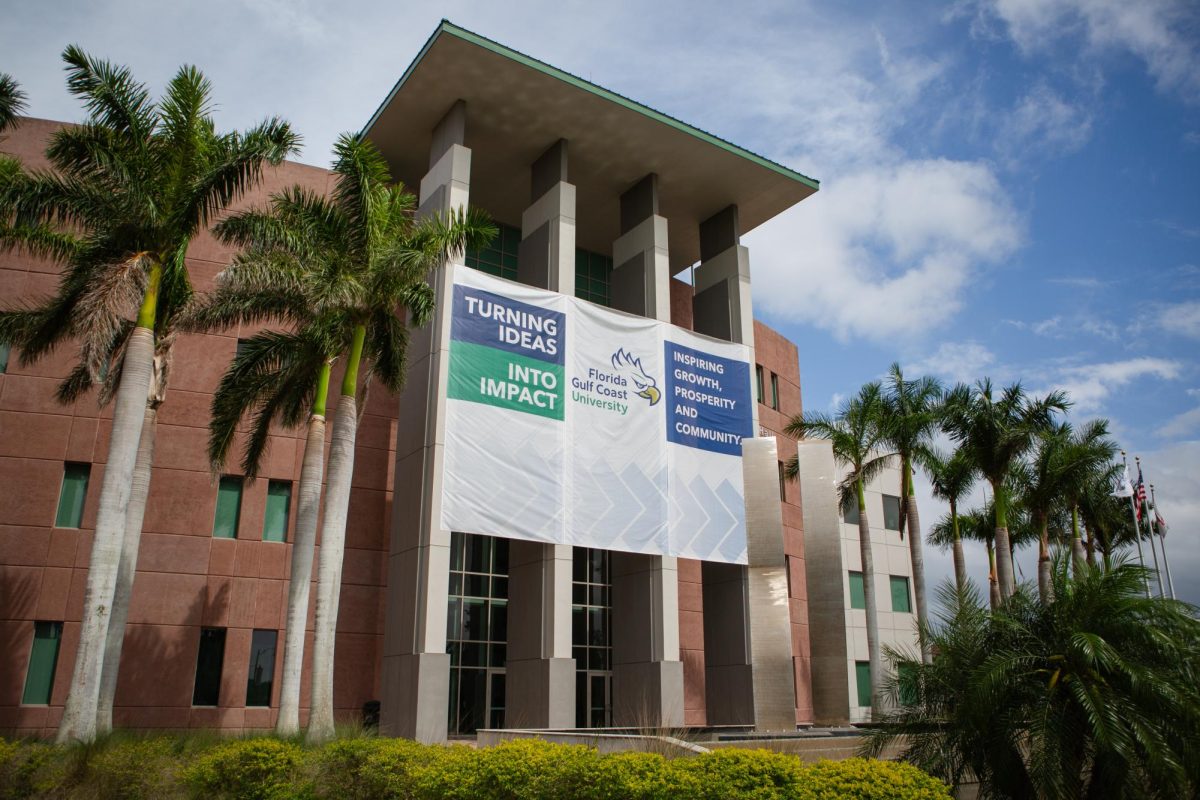During President Barack Obama’s 2011 speech about Libya, he emphasized the need for action and the severity of the situation in Libya due to Qaddafi’s tyranny.
“For generations, the United States of America has played a unique role as an anchor of global security and as an advocate for human freedom,” Obama said. “Mindful of the risks and costs of military action, we are naturally reluctant to use force to solve the world’s many challenges. But, when our interests and values are at stake, we have a responsibility to act. That’s what happened in Libya over the course of these last six weeks.”
Compared to his relatively confident and assured demeanor in 2011, Obama has recently stated that the lack of preparation on behalf of U.S. intervention in Libya was the worst mistake he has made as president.
This major error was “failing to plan for the day after what I think was the right thing to do with intervening in Libya,” Obama said during an interview.
Contrary to Obama’s recent declaration that his intervention and failure of planning was a mistake, I believe that immediate action was necessary and that he made a good decision.
It is important to note that planning for the day after may have potentially cost thousands more Libyans their lives.
The instability in Libya emerged after the Arab Spring swept across North Africa and the Middle East, beginning in Tunisia, as citizens held demonstrations and a successful revolution developed in 2011.
This single uprising in Tunisia caused a chain reaction, as Egypt, Libya, Syria, Yemen and other nations called for the ousting of their leaders who ruled with tyranny. Deposing these oppressive authoritarian regimes has liberated citizens who were fed up of the repression, poverty and overall lack of opportunities.
Tunisia had a relatively peaceful revolution and subsequent outcome. But, several other countries struggled, as democracy failed to take root.
Deposing Qaddafi was a massive victory because Qaddafi was willing to kill men, women and children who were citizens of his country in order to preserve his power.
Furthermore, Syria is in worse shape than Libya, and the situation in Syria would have been better if the U.S. chose to intervene.
Instead, Russian intervention has caused even greater damage, and it has opened the door for Assad’s regime to kill hundreds of thousands of innocent civilians. The migrant crisis has added insult to injury, as millions of Syrians began to flee from the violence in their homeland.
We don’t see a crisis to this extent in Libya, and waiting even a few days longer to plan and prepare for the intervention would have cost many lives and allowed the violence to persist.
Ultimately, although Libya is still unstable today, it is crucial to highlight the number of lives that intervention in Libya saved because a humanitarian crisis at that scale calls for immediate action from world leaders.




































roboslater • Apr 25, 2016 at 8:57 pm
Everyone understands by now that our intervention in Libya produced a disaster. But many fail to appreciate the magnitude of the disaster. And few understand that the stated reason for the intervention, to prevent a bloodbath, lacked any real basis in fact.
Writing in Foreign Affairs, Alan Kuperman, an associate professor at the Lyndon B. Johnson School of Public Affairs, University of Texas at Austin, provides clarity on these points. The article is called “Obama’s Libya Debacle.” However, given the leading role Hillary Clinton played, the former Secretary of State must take a major portion of the blame, just as she planned to take major credit (see her email traffic with Sidney Blumenthal) when she thought the policy had succeeded.
Here’s how Kuperman summarizes the Libya debacle:
‘Libya not only failed to evolve into a democracy, its has devolved into a failed state. Violent deaths and other human rights abuses have increased several fold. Rather than helping the U.S. combat terrorism, as Qaddafi did during his last decade in power, Libya now serves as a safe haven for militias affiliated with both al Qaeda and ISIS.”
Let’s consider these effects one-by-one. That Libya is a failed state cannot be denied. It has had seven prime ministers in less than four years. Dozens of anti-western militias have arisen. Islamist influence in the government is so substantial that we have “postponed” plans to train 6,000 to 8,000 Libyan soldiers.
According to Kuperman, Libya has traditionally been ranked as having Africa’s highest standard of living. But instability and fighting are wrecking the economy. Oil production is way down, and airports and seaports in Libya’s two biggest cities — Tripoli and Benghazi — are closed.
The human rights situation is at least as bad. After gaining power, the rebels went on a spree of beatings, detentions, torture, and murder. They expelled 30,000 mostly black residents from Tawargha and burned and/or looted their homes. Following this ethnic cleansing, Tawargha became a ghost town.
Six months after the civil war ended, Human Rights Watch said that the ongoing human rights abuses “appear to be so widespread and systematic that they may amount to crimes against humanity.” Since then, Amnesty International and the U.N Office of the High Commissioner for Human Rights have both made similar findings.
The U.N. estimates that 400,000 Libyans have fled their homes. Many of them have fled their country, as recent stories about attempts to enter Italy have highlighted.
Libya has also become a haven for terrorists. Both ISIS and al Qaeda have a significant presence.
The demise of Qaddafi was a bonanza for anti-American terrorists in an additional respect. By virtue of his overthrow, the former strongman’s arsenal of weapons fell into the hands of terrorists throughout North Africa. Human Rights Watch says that the amount of weapons on the loose in Libya today dwarfs the number in Somalia, Afghanistan, and Iraq. For example, an estimated 15,000 man-portable air defense systems are unaccounted for.
Under Qaddafi, during his last years, Libya aided the U.S. in fighting terrorism. Qaddafi’s intelligence service regularly provided information about Libyan fighters in places like Pakistan, as well as intel about A.Q. Khan, who sold nuclear know-how to our enemies.
Qaddafi’s contributions were such that, in 2009, Gen. William Wood, head of the U.S. African command, called Libya “a top U.S. partner in combating transnational terrorism.”
Thanks to Barack Obama and Hillary Clinton, Libya, once part of the solution to terrorism, is now a significant part of the problem.
Why did Obama and Clinton decide to intervene against government that had become useful to the United States and to support rebels whose friendship could hardly be counted on? The stated rationale was to avert a humanitarian disaster.
But Kuperman makes a strong case that no humanitarian disaster was impending. At the time of our intervention, the Libyan civil war was virtually over. The rebels had been defeated; their last stronghold, Benghazi, was about to fall.
The civil war had been bloody, as is the way with wars, but hardly a humanitarian disaster. Prior to our intervention, about 1,000 people had been killed, according to Kuperman. Most of them were combatants. The evidence for this is that few of the victims were women. Had Qaddafi disregarded civilian lives, many more women would have perished in indiscriminate killing.
President Obama claimed that intervention was required to prevent a bloodbath when Benghazi fell. He has said: “We knew that if we waited one more day, Benghazi, a city nearly the size of Charlotte — could suffer a massacre that would have reverberated across the region and stained the conscience of the world.”
But this claim was based on propaganda by rebels on the verge of losing the war. In reality, there was no good reason to fear a massacre in Benghazi. According to Kuperman, there had not been revenge killings, let alone a bloodbath, in any the cities Qaddafi’s forces had retaken (e.g, the recently retaken town of Ajdabiya — population nearly 80,000).
Qaddafi had announced that there would be no revenge killings in Benghazi either. Based on the history of the civil war, there was no reason to doubt this promise.
Ultimately, the Obama-Clinton intervention cost thousands of Libyan lives. Before the intervention, around 1,000 lives had been lost. Since then, says Kuperman, the death toll is around 10,000. And counting.
Did Obama and Clinton really fear a bloodbath or was there another agenda. Legacy-building cannot be ruled out. Qaddafi was tame, and indeed pro-U.S., by the time of the civil war. But most Americans still knew him as an arch-villain almost on the scale of Saddam Hussein. Taking him out would be viewed by many as a major accomplishment for an administration sorely in need of a foreign policy success.
Perhaps too (or alternatively) Obama and Clinton felt that taking out Qaddafi would put the U.S. on the right side of the Arab Spring, which neither had anticipated and both were in the process of misjudging. Being on “the right side of history” seems like an obsession for Obama.
But Obama had no basis for believing that rebels on the verge of defeat and of indeterminate ideology and loyalty were the vanguard of a salutary history. The better view was that Qaddafi’s pro-western son Saif was Libya’s best bet.
According to Kuperman, the old dictator, age 69 and in ill-health, was on his way out, with Saif soon to take over. Saif was a reformer who had said he would take no position in government unless a new constitution and new laws were in place and a transparent election had occurred.
Saif’s credentials as a reformer were evident from the fact that he persuaded his father to admit blame for a 1996 prison massacre and to pay compensation, as well as from his publication of testimony by torture victims. In 2009-10, he persuaded his father to release large numbers of political prisoners.
If anything, Saif might have been too much of a reformer, and too soft, for his own good. Nonetheless, he, not the rebels, represented the best hope for a stable, peaceful, non-terrorist, and U.S. friendly Libya. This should have been obvious to Obama and Clinton.
What became of Saif? NATO supported militias captured and imprisoned him. A few days ago, a Libyan court sentenced him to death by firing squad.
But, failed state that Libya is, the government is not capable of carrying out the sentence. Saif is the captive of a rival entity that has said it will not turn over Qaddifi’s son.
The Libya intervention is not legacy-defining for Barack Obama. He has Obamacare and, in all likelihood, the Iran deal.
Libya is, however, the defining feature of Hillary Clinton’s tenure as Secretary of State (with the Russian reset in second place). The slaying of Chris Stevens and others in Benghazi ensures that this will be so.
It’s a wretched legacy, don’t you think?
– Paul Mirengoff